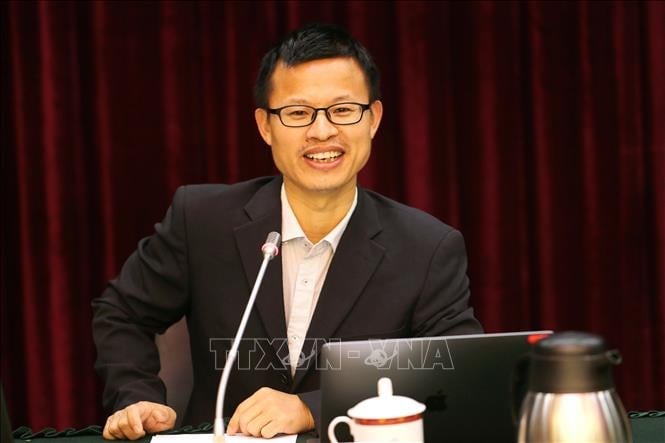Countries voice concern over China’s ADIZ in East Sea
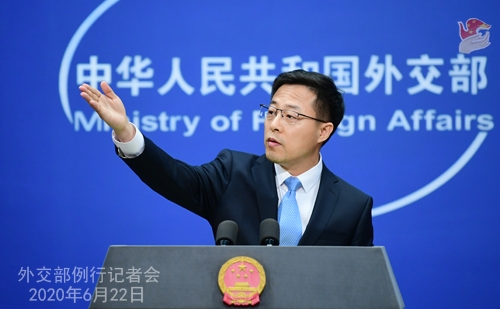 |
| Foreign Ministry Spokesperson Zhao Lijian at the regular press conference on June 22, 2020. |
'Every country has the right to establish an ADIZ'
Spokesman for the Chinese Ministry of Foreign Affairs Zhao Lijian on June 22 was asked by Nihon Keizai Shimbun's reporter to confirm a report that China was "getting more likely" to establish such an aerial zone in the South China Sea.
"I'm not sure what the source of this report is, but I'd like to stress that every country has the right to establish an ADIZ and to decide whether to establish an ADIZ based on the intensity of the threats it faces in air defense security," Zhao said, referring to a report in The Economist.
"In the light of the air security threats China faces above relevant waters of the South China Sea, China will carefully and prudently study the relevant issue taking into account all factors," he added.
The Air Defense Identification Zone is airspace over land or water in which the ready identification, location, and control of civil aircraft over land or water is required in the interest of national security.
China's Defence Ministry announced its ADIZ over a vast area in the East China Sea in 2013, which covers the area around the Diaoyu islands, controlled by Japan and known as the Senkaku Islands. The establishment of this zone drew strong opposition from Japan, the US and South Korea, becoming a flashpoint in East Asian politics and security.
An ADIZ in the South China Sea would likely mean that civilian planes would need to report their presence to Chinese air traffic control, and could potentially be intercepted if they didn't.
Experts have said that enforcing such a zone, which would cover a vast area of the South China Sea, would present huge logistical challenges for the Chinese air force and could provoke a diplomatic backlash.
China has for years been expanding its territorial claims in the sea and has installed weapons systems and established military outposts, while deploying maritime militia vessels to the South China Sea.
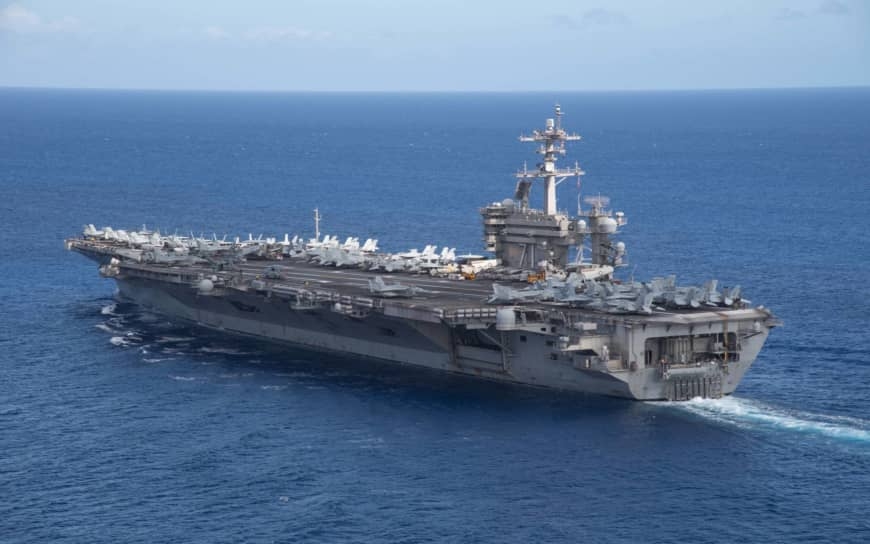 |
| The aircraft carrier USS Theodore Roosevelt operates in the Philippine Sea on May 21, following an extended visit to Guam in the midst of the coronavirus pandemic. Source: US NAVY |
US watching if Beijing declares ADIZ
A Chinese move to claim an ADIZ in the sea region could have a negative impact on the ability of nations to fly, sail and operate in a free and open Indo-Pacific "wherever international law allows," Gen. Charles Q. Brown Jr. said during a special teleconference briefing from Hawaii on June 25.
"It really goes against the rules-based international order, and that's concerning not only for PACAF and the United States, but I would say many of the nations in the region," Brown said, referring to a potential Chinese ADIZ in the South China Sea, while he fielded questions from reporters across the region about a range of issues related to his Pacific Air Forces (PACAF) command.
"And this kind of impinges upon some of the international airspace, and it impacts not just the PACAF, but all the nations in the region," he added. "And so, it's important for us to pay attention to something like this."
The air force commander said he was also "concerned by increasing opportunistic activity by the PRC [People's Republic of China] to coerce its neighbors and press its unlawful maritime claims while the region and the world is focused on addressing the COVID-19 pandemic."
"We are committed to upholding the rules-based international order to maintain a free and open Indo-Pacific that protects the sovereignty of every nation, ensures the peaceful resolution of disputes without coercion, and promotes free, fair, and reciprocal trade, and preserves freedom of navigation and overflight," Brown added.
Philippines rejects China’s AIDZ
Reacting to concerns raised by the US Air Force chief, Philippine Defense Secretary Delfin Lorenzana agreed with Gen. Brown Jr on China’s excessive claims, reported News5 online news channel of the Philippines.
“First, an ADIZ by China over the entire South China Sea would arrogate unto itself a vast sea considered to be a global commons that has been opened for millennia to all for navigation and fishing,” Lorenzana said.
“Second, it violates the exclusive economic rights of littoral states over their exclusive economic zones (EEZs) under the United Nations Convention on the Law of the Sea (UNCLOS) of which China was a signatory.
Lorenzana made a comment a day before Southeast Asian leaders hold its first summit via video conference because of the pandemic.
President Rodrigo Duterte will raise the South China Sea during the summit, Robert Borje, the president’s foreign policy adviser, told journalists.
“For our part, the president has always been very clear on the country’s position on the developments in the South China Sea and what the objectives are, including the finalization of the Code of Conduct, final and substantive Code of Conduct for the South China Sea,” Borje said.
Lorenzana further said “a lot of countries will treat this ADIZ as illegal and violative of international laws.”
He warned Beijing’s plan “would further raise an already heightening tension and could result in mishaps or miscalculations at sea and in the air.”
“It is my fervent hope that China would not proceed with this planned action for the continued peace and stability in the entire South China Sea,” he added.
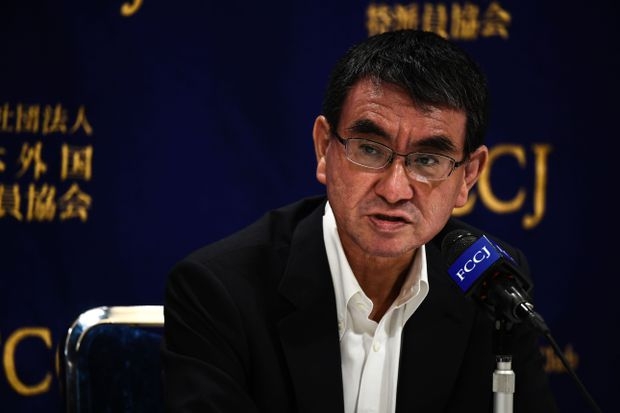 |
| Japanese Defence Minister Taro Kono speaks at a news conference at the Foreign Correspondents Club of Japan, in Tokyo, on June 25, 2020. CHARLY TRIBALLEAU/AFP/GETTY IMAGES |
On the same day, at a news conference, Japanese Defence Minister Taro Kono also raised concern about China’s increasingly assertive activity in regional seas and skies, stressing that Chinese coast guard vessels are repeatedly in and out of Japanese waters around East China Sea islands, and a Chinese submarine recently passed just off Japan’s southern coast, reported AP.
“China is trying to change the status quo unilaterally in East China Sea, South China Sea and with Indian border...” Kono said. “It is easy to make connections about those issues.”
Meanwhile in Jakarta on June 24, Indonesian Foreign Affairs Minister Retno Marsudi urged members of the ASEAN bloc to take a firm stance regarding Chinese territorial claims in the South China Sea.
Retno expressed concern over "rivalry among big powers in the South China Sea" and said it is important for ASEAN "to continuously send messages to all parties to contribute in the stability and peace" in the area.
"Collaboration and cooperation, not rivalry, must always be prioritized," she added./.
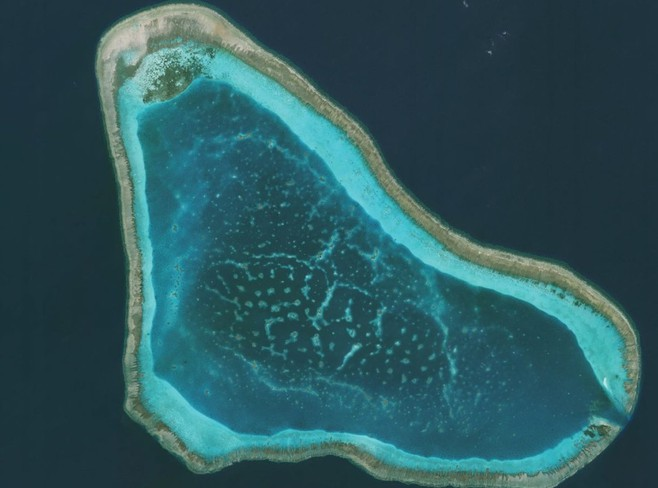 | Philippines Foreign Secretary admitted China's weaponization in Scarborough Shoal in the East Sea The Philippines Foreign Secretary Teodoro Locsin Jnr said on June 22 that China had "consolidated and weaponized" the Scarborough Shoal in the East Sea (also ... |
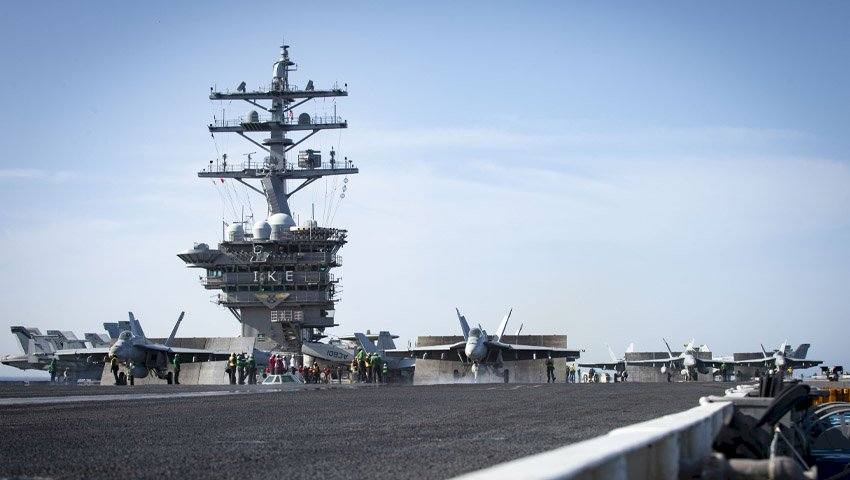 | US deploys two carrier groups to the doorstep of South China Sea On June 21, two strike carrier groups of USS Theodore Roosevelt (CNV71) and USS Nimitz (CVN68) were deployed to join in dual carrier flight operations ... |
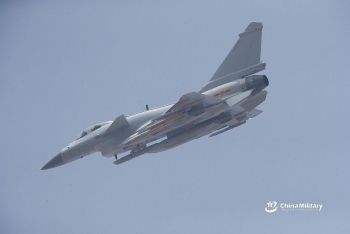 | Chinese bomber, fighter approaches Taiwan for 8th time this month A Chinese bomber and fighter jet approached Taiwan's airspace on June 22, before being warned off by its air force, the island's military said. |
Recommended
 Seas and islands
Seas and islands
Vietnam Endorses Common Voice on Ocean Jurisdiction
 Seas and islands
Seas and islands
Dialogue as Key to Settling Disputes and Advancing Law of the Sea
 Seas and islands
Seas and islands
RoK Navy Ship Pays Friendly Visit to Da Nang City
 Seas and islands
Seas and islands
Naval Region 5 Promotes Reading Culture, Fosters Patriotism
Popular article
 Seas and islands
Seas and islands
Coast Guard Region 2 Command Hosts Philippine Coast Counterpart
 Seas and islands
Seas and islands
Vietnam - Thailand Navy: Coordination to Well Address Problems at Sea
 Seas and islands
Seas and islands
Honoring the Fallen: Incense Offering for the 37th Anniversary of Gac Ma
 Seas and islands
Seas and islands









